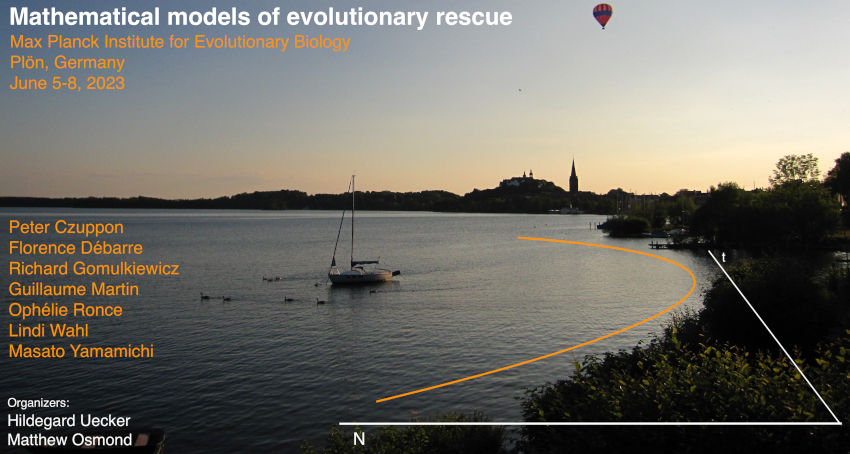Speaker
Description
Surviving changes in the environment by rapid adaptation, termed evolutionary rescue, is central to the fields of conservation, antibiotic resistance and agriculture. Conventionally, evolutionary rescue studies assume a genetic basis of adaptation. However, there is growing evidence for transgenerational epigenetic effects that can influence evolutionary dynamics and consequently the probability of rescue. Specifically, epigenetic alleles tend to have a higher mutation rate, are more unstable (i.e., revert more easily) and have different inheritance patterns from genetic alleles. We use a theoretical model using branching process to investigate the effect of epigenetics on the survival chances of a population. Beneficial epigenetic alleles alter the chances of rescue directly and indirectly by altering the genetic variation. We find that, counter-intuitively, beneficial epigenetic alleles can potentially reduce the chances of survival. This happens when the epigenetic allele out-competes the beneficial genetic alleles due to higher mutation rates and gene-drive like effects. However, because epigenetic alleles are unstable, they are harmful in the long term. In addition to providing fundamental insights into the role of epigenetics in evolutionary rescue, these results have applied relevance in agriculture, where there is evidence of epigenetic basis for antibiotic resistance genes in several plant species. Our results quantitatively show that epigenetics can have significant - and unexpected - consequences for evolutionary rescue.

